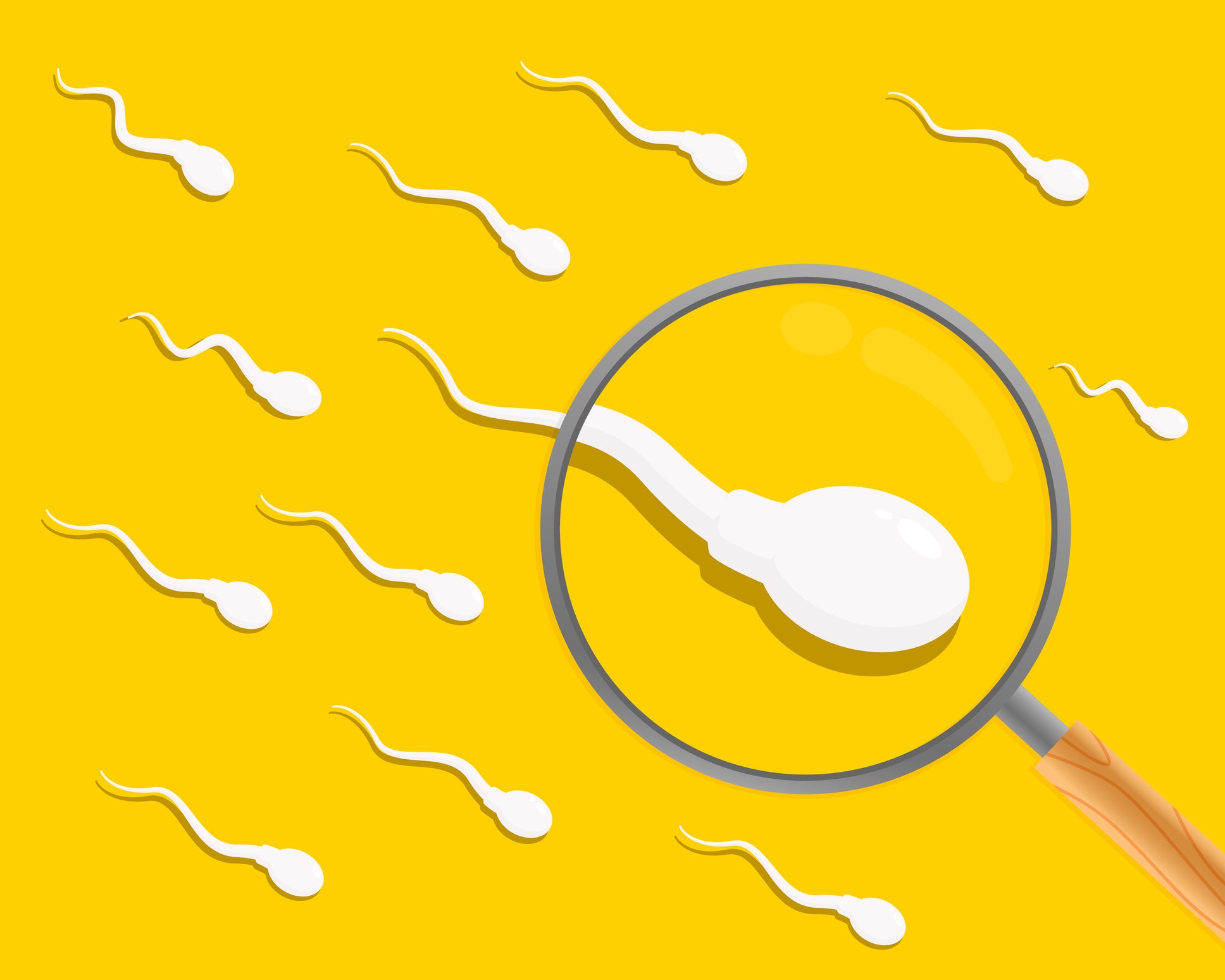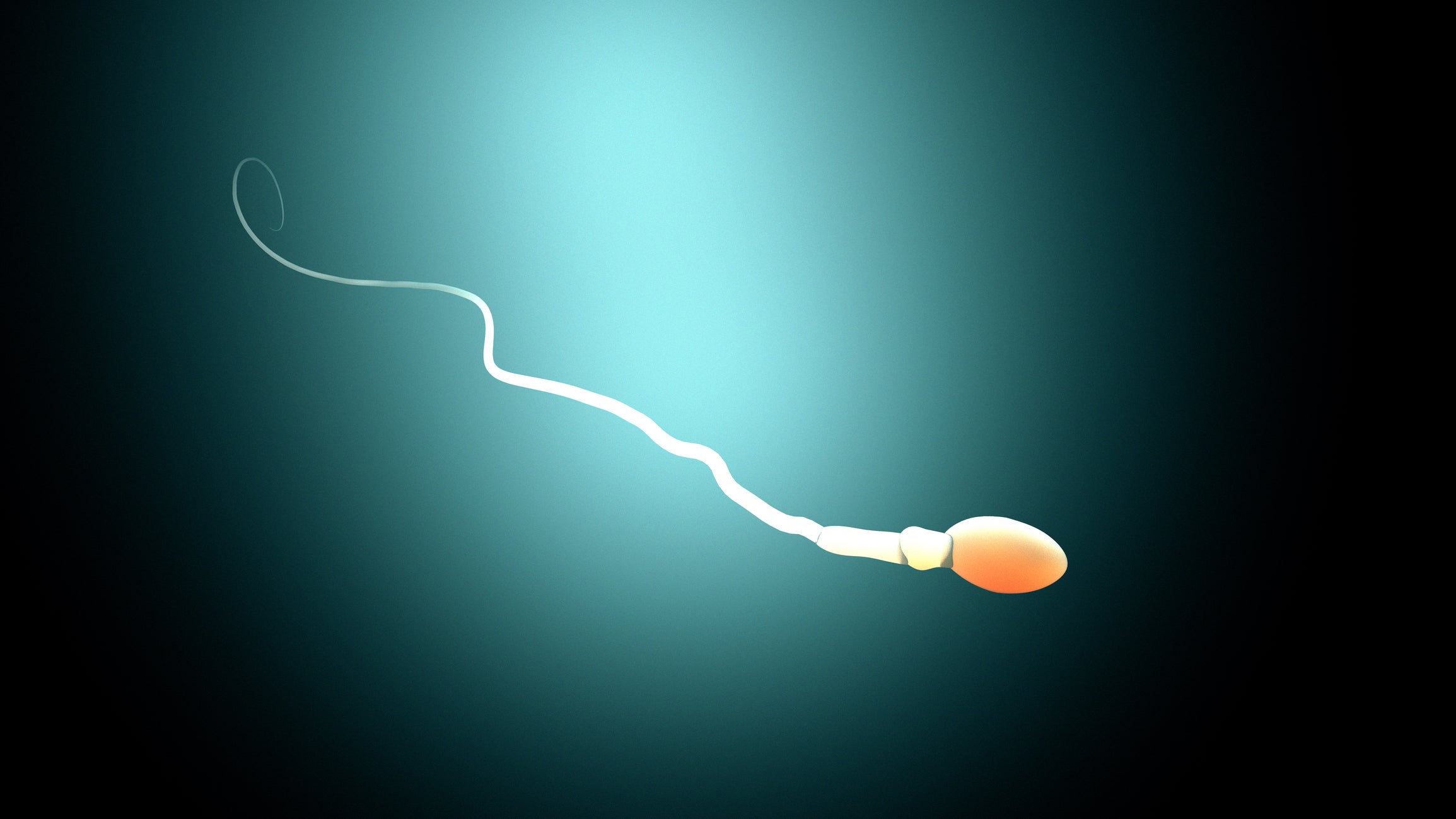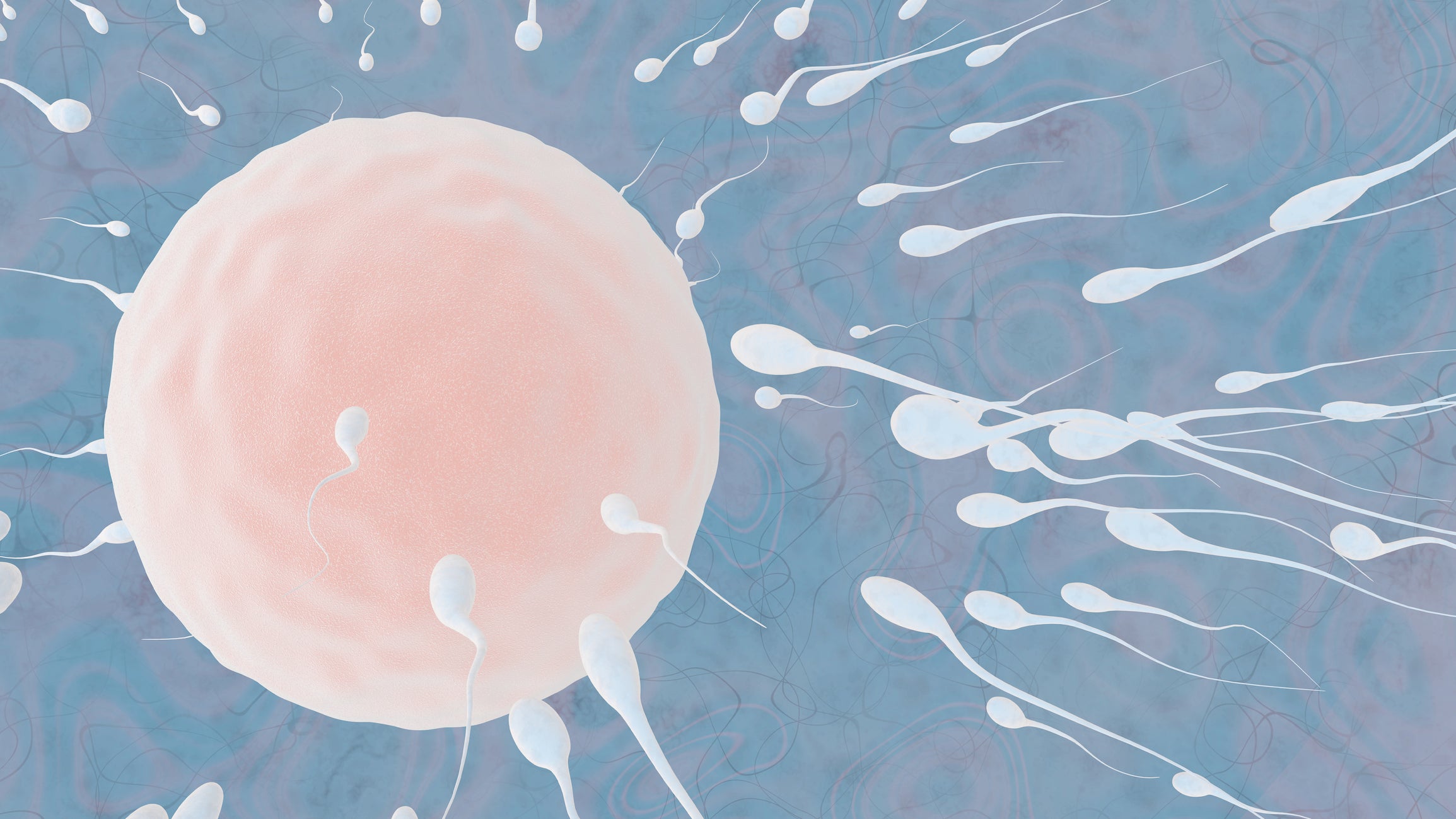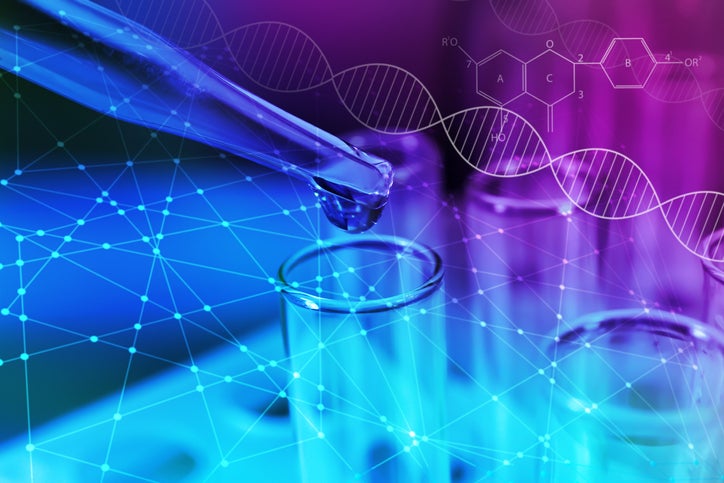-
Can Coffee Affect Sperm Health?

In the pursuit of parenthood, you’re doing all you can to facilitate the plan. Are there roadblocks in your way that you may not even know about? What foods can you eat to ensure a healthy sperm count? What foods should you cut out? What about coffee? Is it dangerous to sperm? Here’s everything you need to know about coffee and how it affects sperm health.
The Fertility Journey
As we embark on the path to better fertility in the pursuit of parenthood, it is evident that both the carrier of the child and the provider of the sperm will need to make a few lifestyle changes. Some of these changes can include:- Getting More Rest
- Cessation from Smoking
- Limiting or Quitting Alcohol Consumption
- Getting More Exercise
We also know that someone carrying a child should limit coffee intake. Excessive coffee intake has been linked to several complications during fertility and pregnancy, including premature birth, pregnancy loss, and fetal growth issues.
Coffee’s Effect on Sperm Health
There is substantial evidence that the quality of semen has declined worldwide. Is coffee to blame? Multiple studies have been conducted to study the effects of coffee on sperm, and here are the most recent findings.- Coffee Doesn’t Affect Sperm Count
Currently, no studies show that coffee’s caffeine intake affects sperm count. Cola drinkers did have a lower sperm count, but they also had other poor nutritional habits that may have contributed to these effects. - Coffee Doesn’t Affect Sperm Concentration
A recent study showed that men who consume four or more cups of coffee daily have a higher sperm concentration than men who drink 0 cups of coffee per day. However, men who consume 1-3 cups of coffee daily have the highest sperm concentration of these three groups. - Coffee Does Seem to Alter DNA of Sperm
Some studies have shown that coffee intake is related to damaged or altered DNA, specifically double-strand DNA breakage. - Coffee Intake Does Seem to Increase the Time it Takes to Conceive
There is also corelative evidence that links coffee intake with lengthening the time it takes to conceive.
Conclusion
Caffeine intake from coffee does not seem to have a significant effect on sperm count or concentration, but there does seem to be some DNA damage that is related to coffee intake. Additionally, caffeine intake from cola did have a slightly negative effect on sperm count and quality. A recent study concluded that those who consumed a moderate amount of coffee had a higher likelihood of conceiving than those who drank a low amount. The same study concluded that high levels of coffee consumption had adverse effects. Consuming caffeine from any source in moderation is likely the best choice while trying to conceive.Center for Vasectomy Reversal
If you are considering a vasectomy reversal, it’s essential to understand everything that goes into the procedure. The Center for Vasectomy Reversal can help. Read our patient reviews to learn about our increasingly positive satisfaction rate. We will help you navigate the challenges on the way to becoming a parent. When you’re ready to check us out, visit our website or call us at (941) 313-7749. -
How Low Testosterone Can Affect Your Sperm Health

Low testosterone levels can have a serious effect on your sperm health. It’s important to understand why testosterone is so important for effective sperm production, and how you can keep your sperm healthy even if you have low testosterone. In this blog post, we will discuss the relationship between testosterone and sperm health, as well as the potential treatments available to ensure your sperm are in top condition.
What is Testosterone?
Testosterone is a hormone produced by the male body that helps stimulate reproductive organs including the testicles, prostate, and seminal vesicles. It is responsible for the development of secondary sexual characteristics such as facial hair growth, deepened voice, and increased muscle mass. Testosterone plays an important role in maintaining proper sperm production and fertility.
The Role of Testosterone in Sperm Health
Low testosterone levels can lead to decreased sperm count, poor motility (movement), lower quality DNA integrity, and reduced overall semen volume. These factors can all contribute to infertility or difficulty conceiving naturally. Low testosterone levels can also lead to erectile dysfunction or reduced libido which can further impact fertility issues.
Signs That Your Testosterone Levels May Be Too Low
Low testosterone levels can have a huge impact on your health. If you are concerned that your testosterone levels might be too low, read on to learn eight signs that may indicate a problem:
- Decreased Muscle Mass: Muscle mass is an indicator of healthy testosterone levels. If you find that you are losing muscle mass even though you are exercising regularly, it could be a sign that your testosterone levels are dropping.
- Fatigue: Testosterone plays a role in energy production in the body. If you tend to feel tired throughout the day or find yourself needing frequent naps, it could be due to low testosterone levels.
- Loss of Libido: Low testosterone can cause changes in libido, including difficulty getting aroused and decreased sexual desire.
- Decreased Bone Density: One benefit of healthy testosterone levels is increased bone density and strength in men over 30 years old; however, low T-levels can lead to weaker bones and an increased risk of fractures and other injuries.
- Hair Loss: Hair loss is another common symptom associated with lower-than-normal testosterone levels; however, this condition is often attributed to genetics rather than hormone imbalances – so hair loss does not always mean that there’s something wrong with your hormones!
- Irritability: If you’re feeling especially irritable lately, or if small things seem to bother you more than usual, it could be related to lower-than-normal T-levels. A blood test will help determine whether hormonal imbalance may be at play here.
- Difficulty Concentrating: If you find yourself having difficulty concentrating on tasks at work or school lately – or simply having trouble remembering things – then low T-levels may indeed be part of the problem!
- Mood Swings: Mood swings can sometimes occur when testosterone levels become too low. While they aren’t necessarily dangerous (as long as they don’t interfere with daily life), they can indicate an underlying hormonal imbalance that should be addressed, if possible, through lifestyle changes or medical intervention from Centers for Vasectomy Reversal specialists.
Male Fertility Testing Services
The Center for Vasectomy Reversal has many years of experience providing comprehensive male infertility testing services designed specifically to identify any issues related to low testosterone or other issues impacting sperm health that may be preventing conception naturally– contact us today to learn more!
-
What is Semen Aspiration?

Semen aspiration, also referred to as sperm retrieval, is a medical procedure used to collect sperm from the male reproductive tract body for use in fertility treatments. The sperm retrieved are used to fertilize the eggs of the female partner through in vitro fertilization (IVF). There are many different techniques that can be used for sperm retrieval, and the best method will depend on the individual’s situation.
There are several reasons why this procedure may be necessary, including sperm transport disorders, blockages in the reproductive tract, or a lack of sperm production. Read on to learn more about semen aspiration, why it’s done, and what to expect during the procedure.
What to Expect During Semen Aspiration Treatment
There are a few different methods of semen aspiration treatment. The sperm may be retrieved from the testicles, epididymis, or vas deferens. In some cases, the sperm may be obtained from the ejaculate.
Semen aspiration is typically performed under sedation or anesthesia. A needle is used to retrieve the sperm, which are then collected in a sterile container. The procedure usually takes less than 30 minutes.
In most cases, semen aspiration is successful in retrieving sperm for use in IVF. Semen aspiration is considered a low-risk fertility treatment and has a high success rate.
What Are the Risks of Semen Aspiration?
Although semen aspiration is generally safe and effective, there are some risks associated with the procedure.
First and foremost, there is a small risk of infection. The uterus is a sterile environment and introducing bacteria from the outside can lead to an infection. There is also a slight risk of puncturing the uterus, which can cause internal bleeding. In very rare cases, this can lead to serious health complications.
There is a very small risk that the needle used to aspirate the semen will damage the embryo. However, this is typically only a concern when aspiration is performed before implantation has occurred.
Overall, while there are some risks associated with semen aspiration, they are generally very rare and can be effectively mitigated with proper medical care. As such, semen aspiration remains a safe and effective way to collect genetic material. Risk can be minimized by working with an experienced medical professional.
Why is Sperm Retrieval Needed?
The most common reason for needing sperm retrieval is due to a blockage in the man’s reproductive tract. This blockage can occur at any point along the way, from the testicles to the opening of the penis. A blockage can be caused by an injury, surgery, or a birth defect.
In some cases, a man may have no sperm in his ejaculate at all. This is called azoospermia and can be caused by several factors, including infection, cancer, and other conditions.
Why Choose Us?
The Center for Vasectomy Reversal in Florida is one of the world’s leading fertility centers, offering a wide range of fertility treatments to help couples conceive. Sperm retrieval is used for men who have had a vasectomy or for those who have a condition that prevents them from producing sperm.
At CVR, our experienced team offers a variety of sperm retrieval techniques, including microsurgical epididymal sperm aspiration (MESA), percutaneous epididymal sperm aspiration (PESA), and testicular sperm extraction (TESE). We also offer intracytoplasmic sperm injection (ICSI), which can be used in conjunction with any of these techniques. Our goal is to help you conceive the healthy baby you’ve always wanted. Contact us today to learn more or to schedule a consultation!
-
Fun Facts About Semen

Here’s a well-known fact that we rarely mention: None of us would exist without semen. Why stop there? Let’s learn more about this fluid vital for human life.
Semen vs Sperm
People use these terms interchangeably, but they mean different things. Stated simply, semen is the bodily fluid that contains sperm.
What Else Is In Semen?
In addition to sperm, semen also contains other ingredients. According to WebMD, “the fluid is made mostly of water, plasma, and mucus (a lubricating substance). It also contains 5 to 25 calories, and is made up of small amounts of essential nutrients including: calcium, citrate, fructose, glucose, lactic acid, magnesium, potassium, protein and zinc.” These ingredients serve an important purpose. Sperm “need nutrients because they must travel a great distance and withstand the harsh environment of the vagina. The nutrients found in semen will keep the sperm alive and provide energy while they race to the egg. Their main energy source is fructose, a type of sugar.”
Sperm Count / Density
When men ejaculate they release an average of 2-6 milliliters (mL) of semen, or approximately a 1/2 teaspoon to 1 teaspoon. Each milliliter contains an average of 15 million sperm. Sperm count can be affected by lifestyle, environment and age, though healthy men over age 70 still have the potential to have children.
Sperm Motility
Sperm motility is “the percentage of sperm in a sample that are moving, as well as an assessment of how they move,” according to WebMD. “One hour after ejaculation, at least 32% of sperm should be moving forward in a straight line.” And according to Sarah Vij, MD, director of the Center for Male Fertility at Cleveland Clinic, “The optimal timing between ejaculations in a man trying to cause a pregnancy is 24-48 hours to allow for a release of a high number of motile sperm.”
Sperm Life
According to a post from Patricio C. Gargollo, M.D. of Mayo Clinic, “The life span of sperm after ejaculation depends on the circumstances. Ejaculated sperm remain viable for several days within the female reproductive tract. Fertilization is possible as long as the sperm remain alive — up to five days. Sperm can also be preserved for decades when semen is frozen.” One thing keeping sperm alive inside the cervix is cervical mucus.
Healthy Sperm
WebMD gives the following advice for healthy sperm:
- Don’t smoke or use illegal drugs, especially anabolic steroids.
- Avoid toxins such as pesticides and heavy metals.
- Limit alcohol intake.
- Maintain a healthy diet and weight.
- Keep your scrotum cool, because heat slows sperm production. Avoid hot baths and tight pants. Wear boxers instead of briefs.
At the Center for Vasectomy Reversal, we are committed to helping men overcome reproductive issues and start healthy families. We pride ourselves on helping men improve their fertility through uncompromising, concierge-level patient care. Under the direction of Dr. Joshua Green, our team provides state-of-the-art treatment for men who need a reversal of their vasectomy or have other fertility concerns. To learn more, contact us through our website or call 941-210-6649.
-
Foods that Affect Sperm Count

Did you know that the sperm count of the average man has steadily decreased over the past 40 years? Why is this happening? Is it a problem that the quality of sperm is decreasing? It is certainly a problem for a man who is struggling with infertility. Fortunately, there are some things you can do to promote your sperm quality, and it starts with eating the right foods.
How big of a problem is decreasing sperm quality? The Centers for Disease Control and Prevention (CDC) estimates that a male factor as well as a female factor is involved in about 35 percent of couples experiencing infertility. Additionally, a recent study estimates that sperm counts have dropped by 59 percent, on average over the past 38 years. What’s causing this decrease? No one really knows. Some blame technology like cell phones and laptops, which produce fertility-threatening heat. Obesity may be a factor. And there’s a body of research to indicate that a man’s diet has an impact on sperm count. Here are the dietary do’s and don’ts for improving your fertility.
First, here are the foods to avoid if you want to boost fertility:
- Processed meats, eaten three or more times a week, can reduce your chance of achieving pregnancy by 28 percent. Red meat is also related to low sperm concentration and sperm count, and processed red meat also alters sperm motility. Eating fish and poultry is better for your fertility.
- Trans fats increase the risk of heart disease and decrease sperm counts. In fact, sperm with the highest trans-fatty acid levels are linked to low sperm concentrations. Trans fatty acids typically come from French fries and commercially baked items, as well as foods like frostings and things cooked with lard.
- Soy products have phytoestrogens, estrogen-like compounds that interfere with fertility. Soy milk, veggie burgers, protein bars, tofu, and tempeh are soy-based foods linked to low sperm count, particularly in overweight men.
- High fat dairy products have been linked to abnormal sperm shape and low motility. Whole milk, cheese, and cream are all on the do-not-eat list, because as few as three slices of cheese a day can endanger fertility. Low-fat dairy, however, is linked to higher sperm concentration and motility.
- Pesticides and bisphenol a (BPA) can make their way into your food and diminish fertility. Pesticides can be on vegetables and fruits as well as meat and fish. BPA is in food packaging and cans and can leech into the foods we eat. These chemicals, which area also found in non-stick cookware act as xenoestrogens and decrease sperm concentration.
- Sometimes what you drink can impact your fertility. Alcohol and beverages with excessive caffeine have been linked to a decrease in male fertility.
Now that you know what to avoid, what should you eat? Certain foods have been shown to increase male fertility and improve sperm health.
- Eat your veggies. Fruits and vegetables, especially green leafy vegetables and legumes, have been shown to improve sperm concentration and motility. It’s believed that this is due to the high level of antioxidants and nutrients like co-enzyme Q10, vitamin C, and lycopene, micronutrients linked to higher sperm concentration.
- Have some fish or chicken. Research indicates that eating chicken and fish can actually improve fertility. Fish rich in omega-3 fatty acids, in particular, raise sperm count significantly. On the other hand, taking omega 3 supplements does not have the same effect.
- Walnuts can give your fertility a boost. In a small 2012 study, significant improvements in sperm vitality were seen with the consumption of only 18 walnuts a day.
At the Center for Vasectomy Reversal, we love helping people start families with healthy pregnancies. We pride ourselves on helping men improve their fertility through uncompromising, concierge-level patient care. Under the direction of Dr. Joshua Green, our team provides state-of-the-art treatment for men who need a reversal of their vasectomy or have other fertility concerns. To learn more, contact us through our website or call 941-894-6428.
-
How Stress Affects Semen Quality

It’s long been understood that stress has an impact on a person’s health, so it comes as no surprise to learn that men’s reproductive health may be affected by stress. About 12 in every 100 couples in the United States struggles with infertility, and several studies over the past several years have established a link between poor semen quality and stress. Now, a new study is taking a closer look at both subjective and objective measures of stress to try to determine how it’s connected with semen concentration and sperm motility and appearance.
Male infertility is the problem for about 40 percent of couples with fertility issues. The main cause of male infertility is sperm abnormality, including misshapen or immobile sperm or low sperm production. Sometimes, these abnormalities are caused by medical conditions, but they can also be caused by health and lifestyle factors.
The new study, published in the journal Fertility and Sterility was conducted by researchers from the Rutgers School of Public Health in Piscataway, NJ and Columbia University’s Mailman School of Public Health in New York, NY. Between 2005 and 2008, researchers looked at 193 men between the ages of 38 to 49 who were a part of the Study of the Environment and Reproduction at the Kaiser Foundation Health Plan in Oakland, CA. The men completed a series of tests to measure stress levels, including workplace stress, stressful life events, and perceived stress. They also provided sperm samples, which were analyzed for semen concentration, sperm shape, and sperm movement (motility).
According to the researchers, men who felt stressed had lower concentrations of sperm and more sperm that were misshapen or had impaired motility. Even after considering other factors, like a history of reproductive health or other health problems, life stress negatively impacted sperm quality. Interestingly, job stress did not have the same effect. However, men with stressful jobs had lower levels of testosterone, and unemployed men had a lower quality of sperm than even stressed-out men with jobs.
The researchers don’t fully understand how stress affects semen quality, but they have some theories. It could be that stress triggers the release of glucocorticoids, steroid hormones which lower testosterone and dampen sperm production. Oxidative stress could also be a factor because oxidative stress in the body can degrade semen quality.
What is known is that a man can improve his fertility, even under stress, with healthy lifestyle habits. Staying physically active and practicing stress-reducing relaxation techniques can help, as can eating a nutritious diet and maintaining a healthy BMI. Men who are trying to improve their fertility should quit smoking, limit alcohol consumption, and talk to a doctor before beginning any new medication.
At the Center for Vasectomy Reversal, we pride ourselves on helping men improve their fertility through uncompromising, concierge-level patient care. Under the direction of Dr. Joshua Green, our team provides state-of-the-art treatment for men who need a reversal of their vasectomy or have other fertility concerns. To learn more, contact us through our website or call 941-894-6428.
-
Things you can do to Improve Your Sperm Count

A low sperm count is one of the most common factors in male infertility. If you’re struggling to conceive, it’s important to see your doctor. However, if your problem is low sperm count, you may be able to improve it naturally through a few simple lifestyle changes.
- Stay active. Regular exercise increases testosterone, which improves the quality of semen. Bear in mind that too much exercise can reduce testosterone levels, so it’s important to strike a healthy balance. Some sources indicate that weightlifting and outdoor exercise may be particularly beneficial.
- Lost weight. One benefit of exercise is that it can help reduce your weight, which can increase your sperm count. A recent study showed that men at a healthy weight have more mobile sperm than those at an unhealthy BMI, and weight loss has been shown to significantly increase semen volume, concentration, mobility, and sperm health. If you have a lot of weight to lose, losing even a little bit can help.
- Relax! When you’re under stress, sex is less satisfying, and fertility is reduced. Additionally, stress can raise cortisol levels, inhibiting testosterone levels. Taking time to unwind every day can help boost your fertility. Make sure to get enough sleep, too, because men who get seven to eight hours of sleep each night have better fertility health.
- Mind your substances. Don’t drink heavily, don’t smoke, or use tobacco, and avoid illegal drug use. If you smoke or have a substance abuse problem, get help from your doctor.
- Eat a healthy diet. Pack your diet with nutrient-dense foods, including citrus fruits, green vegetables, nuts and seeds, plant-based oils, beef, and chicken. Focus on antioxidants, which can boost your sperm count. Consider supplements, because vitamins like D, C, E, and CoQ10 and minerals like zinc can help sperm health. Because plant estrogen, called phytoestrogens, reduce men’s sperm production, it’s best to avoid consuming too much soy.
- Clean up your environment. Environmental toxins may affect your sperm count, and while you can’t control pollution, you can limit your exposure to harmful substances in your environment. Substances like pesticides, painting materials, herbicides, degreasers, and solvents can all negatively impact fertility. Radiation and x-rays are harmful to sperm production, and overheating the testicles by wearing tight clothing, visiting a sauna, or working with a laptop in your lap can also lower your sperm count.
- Herbal supplements may help. If you’re interested in natural food supplements, you might try holistic remedies like fenugreek, Tribulus terrestris, ashwagandha, or maca root.
At the Center for Vasectomy Reversal, we love helping men improve their fertility and build their families. Under the direction of Dr. Joshua Green, our team provides state-of-the-art treatment for men who need a reversal of their vasectomy or have other fertility concerns. To learn more, contact us through our website, or call 941-894-6428 for a free consultation.
-
Things That Affect Male Fertility

The journey to parenthood is straightforward for many, but up to 15 percent of couples fail to conceive after a year of trying to get pregnant. Male infertility plays a role in over one-third of these cases. Consider the factors that affect male fertility and what you can do to improve your chances of conceiving a child with your partner.
Causes of Male Infertility
You could have trouble getting your partner pregnant if you have any of the following:
- Low sperm count
- Abnormal sperm function
- Blockages that prevent the delivery of sperm
- Low testosterone levels
What Affects Male Fertility?
The following factors play a role in your sperm count, function, delivery, and testosterone levels:
- Varicocele: Having enlarged veins within the scrotum is the most common reversible cause of male infertility.
- Infection: Some infections interfere with sperm health or production, including several STDs, such as gonorrhea, Chlamydia, and HIV.
- Substance use: Drugs, alcohol, and tobacco can lower testosterone levels and sperm count.
- Overall health: Being overweight or having high blood pressure may reduce fertility. Other medical causes include undescended testicles, tumors, hormone imbalances, chromosome defects, and untreated celiac disease.
- Ejaculation issues: Various conditions may prevent proper ejaculation, including diabetes, spinal cord injuries, medications, and surgery of the bladder, urethra, or prostate.
- Environmental factors: Overexposure to heat, radiation, heavy metals, and industrial chemicals may reduce sperm count or function. Even prolonged biking, horseback riding, or physically demanding work can affect fertility.
- Emotional factors: High stress may interfere with hormones needed to produce sperm. Depression can also cause sexual dysfunction that can cause male fertility issues.
How to Improve Male Fertility
Being unable to conceive a child can be frustrating and stressful. Fortunately, there are a few things you can do to improve your fertility:
- Receive treatment for underlying medical conditions.
- Talk to your doctor about switching medications if infertility is a side effect of anything you’re currently taking.
- Consider the changes you can make to reduce physical strain at work and in your daily life.
- Wear boxers, not briefs, to avoid elevated temperatures and tightness that could affect sperm count.
- Adopt stress management techniques, such as meditation, aromatherapy, yoga, and breathing exercises.
- Examine your lifestyle. If you use substances or are overweight, improving your health may increase your fertility.
- Schedule a doctor visit to check your fertility, especially if you experience sexual dysfunction, pain or swelling in the testicle area, abnormal breast growth, or hormonal irregularities along with fertility issues.
Did you previously have a vasectomy, but now you’re ready to start or grow your family? Dr. Joshua Green at the Center for Vasectomy Reversal can make your dream of fatherhood a reality. We provide state-of-the-art treatment for men looking to reverse a vasectomy or address other fertility concerns. To learn more, please call our Sarasota, FL clinic at 941-894-6428 or schedule a free consultation through our website.
-
New Research about Infertility is Promising
One in eight couples has trouble conceiving. Do you know how many of the cases are caused by unexplained male infertility? Nearly a quarter. For years, scientists have known that infertility can be linked to sperm that fail to throw out histones from DNA during development, but the reasons for this failure and how it happens is unclear. Now, however, that lack of clarity may be changing.

Promising new research out of Penn Medicine is showing the precise location of the retained histones and the key gene that regulates them. Researchers have also created a mouse model with a mutated version of the gene. This allows investigators to track the defects in sperm, starting with the early stages of sperm development and going through fertilization. This research could lead us to a better understanding of infertility in men, and how epigenetic mutations are passed to future generations.
What does it mean, when sperm fail to evict histones? Histones are the main proteins in chromatin. Their function is to package DNA and turn genes on and off. Healthy sperm lose about 90-95 percent of these proteins, replacing them with protamines, smaller proteins able to pack DNA into tiny sperm. When a man has unexplained infertility, the problem is often with retained histones. The sperm count can be normal, the sperm have normal motility, and yet because the histones are in the wrong location, the couple has trouble conceiving.
Until now, research has produced conflicting results about where these histones are located. Because of the confusion of discrepant data, the burden of assisted-reproductive technologies has continued to fall on women. Even if the male has the issue, the female partner goes through hormone injections and procedures to promote a higher fertility rate.
Imagine, then, if scientists were able to use epigenetic therapies to change the levels of histones and protamines in men. With this new research, scientists are better able to closely study the mechanisms behind a mutated sperm’s trajectory, which opens the door to potential therapeutic treatments. Epigenetic drugs are already being used to treat cancer and other diseases. With a clearer understanding of how a man’s epigenome affects conception and embryonic development, we have the potential to alter sperm, so these new studies may lead to a breakthrough infertility treatment.
If you’re struggling with infertility or considering a vasectomy reversal, the Center for Vasectomy Reversal is here to help. Under the direction of Dr. Joshua Green, our team provides state-of-the-art treatment for men who need a reversal of their vasectomy or have other concerns about their fertility. We accept major credit cards as well as cash and checks, and offer a payment plan for those who are unable to pay the entire fee at the time of surgery. Whether you’re ready to schedule a procedure or just want to learn more, you can contact us through our website, or call 941-894-6428 to arrange a free consultation.
-
Your Sperm Count After a Vasectomy Reversal

Vasectomy reversals have a high success rate, and many men and their partners are able to conceive naturally after having a vasectomy reversed. However, reaching optimal sperm production after having the surgery can take as long as six to twelve months. Why so long? More importantly, is there anything that can be done to optimize your sperm count after a vasectomy reversal?
To understand sperm count, it’s helpful to know a little bit about sperm production. A sperm cycle is usually about 90 days. That’s the amount of time it takes for your body to produce new sperm and get rid of the old sperm through ejaculation. After a vasectomy reversal, when a man goes in for his six–week postoperative semen analysis, the sperm motility is typically still low, because the man is still working on getting rid of old, dead, sperm found in the ejaculate. For most men, it takes about two sperm cycles, or six months, to achieve good sperm quality.
If your vasectomy reversal was done by an experienced, well-qualified, specially trained microsurgeon, you can rest assured that your sperm counts will eventually rise as your body returns to optimal sperm production. It’s important to be patient, though, and understand that this process will take some time. While you wait, there are some things you can do to help boost your sperm count.
- Take your recovery seriously. For a couple of weeks after your surgery, it’s important to take it easy, minimizing straining, pulling, lifting, and stretching. Even everyday actions like getting in and out of a car can cause strain, so be sure to follow your doctor’s instructions to the letter.
- Don’t rush back into sex. After a vasectomy reversal, wait three to four weeks before resuming sexual activity. Once the waiting period is over, though, frequent ejaculation is a great way to keep the sperm flowing through your tubes, which helps keep them open.
- Eat a nutrient-dense diet. While vitamin and antioxidants in supplement form may help, there’s really no substitute for a well-balanced diet that’s packed with vegetables and fruits.
- Take anti-inflammatories if your doctor recommends them. At the post-operative check, your doctor can tell you whether there is scarring at the surgical site, which can be improved with anti-inflammatory medications.
- Stay out of the hot tub. High water temperatures can kill healthy sperm, so avoid excessive heat.
- Watch your alcohol consumption, and don’t smoke. Alcohol can impair sperm production, and smoking slows wound healing.
- Follow up with your doctor. It’s important to keep all the recommended follow-up appointments so that your doctor can monitor your progress and make sure you’re healing correctly.
If you’re considering a vasectomy reversal, the Center for Vasectomy Reversal is here to help. Under the direction of Dr. Joshua Green, our caring and skilled team provides state-of-the-art treatment for men who need a reversal of their vasectomy or have other concerns about their fertility. We accept major credit cards as well as cash and checks, and we also offer a payment plan option for those who are unable to pay the entire fee at the time of surgery. Whether you’re ready to schedule a procedure or just have questions and want to learn more, you can contact us through our website, or call 941-894-6428 to arrange a free consultation.
Recent Posts
Popular Posts
categories
- Uncategorized
- Sperm Retrieval
- vasectomy reversal
- Emergency
- Dr. Green
- sperm count
- fertility
- male infertility
- MESA
- medical care
- low sperm count
- IVF
- male fertility testing
- anesthesia
- pregnancy
- sperm aspiration
- semen analysis
- post-vasectomy pain syndrome
- infertility
- VE
- anti-sperm antibodies
- older dad
- general anesthesia
- gender reveal party
- post-operative infections
- baby name
- parent
- baby's first year
- fertilization process
- spinal anesthesia
- ACS Fellow
- nutrition tips
- concierge-level care
- fertility planning app
- azoospermia
- out-of-town patients
- V-V
- post-vasectomy reversal
- conceiving
- vasectomy
- vasoepididymostomy
- smoking
- sperm quality
- baby registry
- infographic
- surgical care
- surgical consultation process
- prostate cancer
- baby gender
- family time
- COVID
- Baby Shower
- Child Care
- Halloween Costume Ideas for Babies
- Halloween
- Halloween Safety Tips
- Celebrity Infertility Spotlight
- Postpartum
- testosterone
- Father's Day
- Father
- Men's Health
- Thanksgiving
- Pregnancy Announcement
- Parenting Tips
- Sperm
